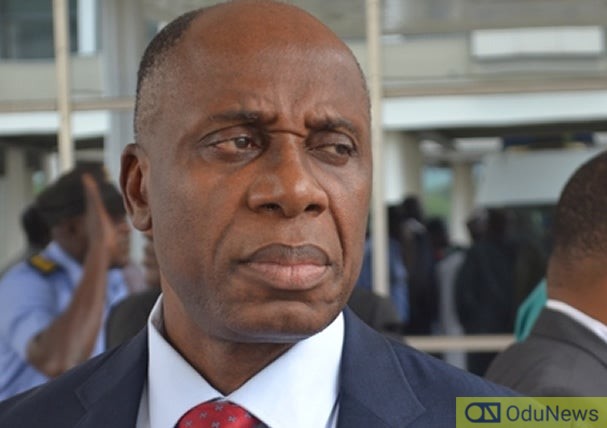Minister of Transportation, Rotimi Amaechi, has given more clarifications on the loan deal agreement between Nigeria and China.

There has been an outburst among some Nigerians after a house of reps member, Hon Ossai Nicholas Ossai, alleged that the sovereignty of Nigeria has been signed off in a loan deal with China.
According to the lawmaker, the agreement which was signed by the Federal Ministry of Finance (Borrower) on behalf of Nigeria and the Export-Import Bank of China (Lender) on 5th September, 2018, Article 8(1) of the agreement, provides that: “The Borrower hereby irrevocably waives any immunity on the grounds of sovereign or otherwise for itself or its property in connection with any arbitration proceeding pursuant to Article 8(5), thereof with the enforcement of any arbitral award pursuant thereto, except for the military assets and diplomatic assets.”
However, Minister of Transportation, Rotimi Amaechi, said the loan agreement between Nigeria and China is only a contract term, a sovereign guarantee that assures payback according to the terms and conditions of any loan.
He also explained that the Ministry of Transportation is not responsible for taking loans, but to implement the project or contract for which the loans were taken.
According to Amaechi, “it is a commercial agreement; a trade agreement between Nigeria and China. The first issue is that the Ministry of Transport does not take loan. Anything about loan, talk to Ministry of Finance.
“What I signed is what they call commercial contract; that is contract between the Federal Government and CCECC as a contractor. “The contract between Nigeria and China is usually signed by the ministry of finance on behalf of Nigeria, but that will be escaping the issue.
“Whether it is the Ministry of Finance that signed it or the Ministry of Transport, the issues are the issues. “There is no contract without an agreement and that agreement must contain some terms and one of the terms that this one contains is not that you’re signing away the sovereignty of the country.
“No country will sign away its sovereignty. What you do is, you give a sovereign guarantee; and I’m ashamed of those who interpret it the wrong way.
“Now, when you say ‘I give you a sovereign guarantee and I waive that immunity clause’, the immunity clause is that if tomorrow I’m not able to pay you and you come to collect the items that we’ve agreed upon (that these are items I have put down as guarantee), I can use my immunity and say no, you cannot touch our assets, we are a sovereign country.
“Is China our father that will give us money for free? They (the Chinese) are saying, if you are not able to pay, don’t stop us from taking back those items that will help us recover our funds.
“And it’s a standard clause, whether it’s with America you signed it or with Britain or any country, because they want to know they can recover their money.
“What the clause does is to say to you, I expect you to pay according to those terms and conditions. If you don’t pay, don’t throw your immunity on me (the lender) when I come to collect back the guarantee you put forward, that’s all.
“The waiving of immunity simply means in trade parlance that I’m not giving you this loan free.
“Just like if you go to take a loan from the bank, the moment you don’t pay, they go after the assets you put down. And people are politicising it. The Chinese can never come and take over Aso rock and become President or Minister.
“In the event of a default, Amaechi stated that the lender can only go after, and take back the same assets built with the loaned funds.
“And if the assets you put down become depreciated, then you negotiate which assets they can go after. The Chinese will never take over what was not constructed with the loan.”


Comments are closed.